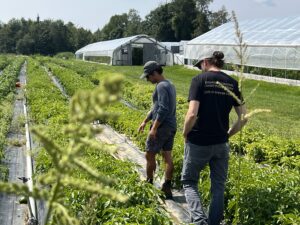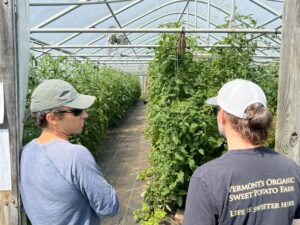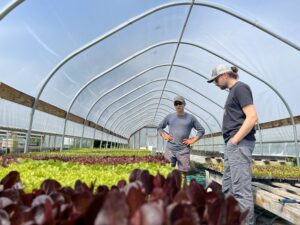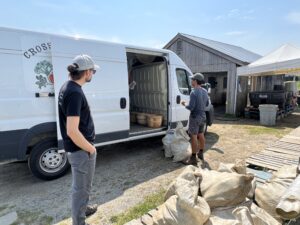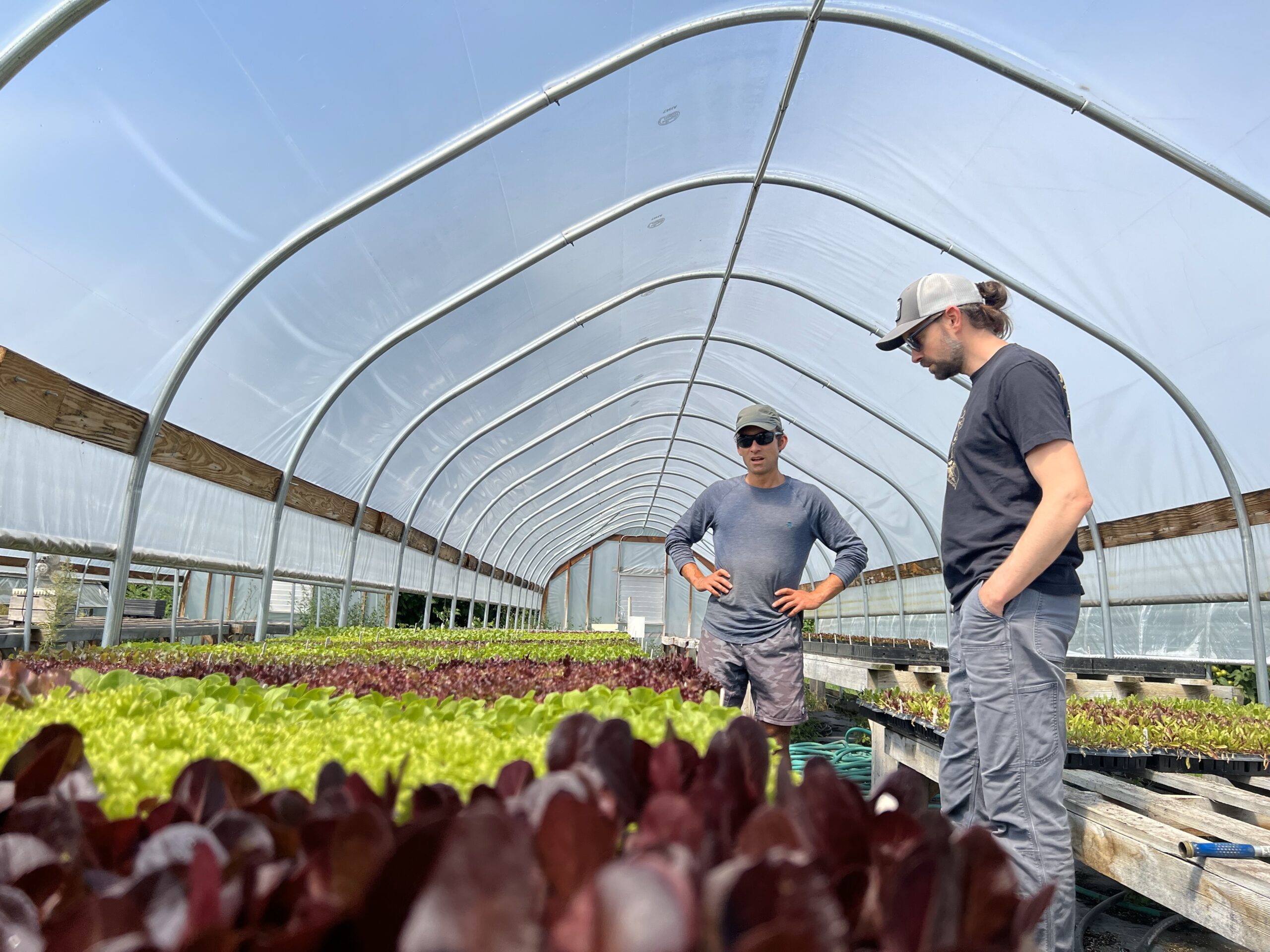
In late summer, when we were still rebuilding after July’s flooding event, the WFM produce team, led by our new produce manager at our Woodstock store, Bill Fielding, took advantage of the “downtime” by visiting some of our local growers. Bill, who came on board just prior to the flood, was already familiar with our local farming community through his work as produce manager at the South Royalton Market. But he was anxious to get out in the field (literally) with his WFM produce cohorts to see how our farmers were faring after the flood and to learn more about their farms and farming practices.
Thankfully, RJ Weyant, longtime WFM produce associate and talented photographer, was part of the expedition team! In a series of Fall Harvest Spotlights, we’re sharing with you where they went and what they saw! First up is …
Crossroad Farm
Post Mills, Vt
In 1980, when Tim and Janet Taylor bought 15 acres of land in Post Mills, Vt and planted a one-acre garden, they hadn’t planned on becoming vegetable farmers. But one thing led to another, and 40-plus years later they’re still at it. But not alone. Their team has expanded through the years to keep up with the demands of a growing farm. In 2017, Phil Mason, a longtime employee and Bates College graduate, joined Tim and Janet in the farm’s ownership. He is also the farm manager.
Over the years Crossroad Farm has grown to include 40 acres of mixed vegetables, strawberries, melons, flowers, and bedding plants. Salad greens, herbs, and crucifers have been their staple crops for over four decades.
Their core belief: Nutrient-rich fruits and vegetables begin with healthy soil. When the Taylors first started farming the land, this is what they focused on—feeding the soil so that it could, in turn, feed their community with produce rich in vitamins and minerals.
Phil and the Taylors are committed to using sustainable farming methods that require minimal or no use of insecticides, fungicides, or herbicides. If they must use pesticides, they use only those that are approved for organic production. And they never use GMO seed.
They take their role as stewards of the land very seriously, having devoted time over the years to learning farming methods that leave the earth in better shape than they found it. Their techniques include: nutrient and irrigation management, using cover crops and green manures, and the introduction of beneficial organisms.
Here’s how the Taylors explain it: “We’re farming beyond our immediate short-term need to be profitable, working to maintain a continual balance between our practices and the backdrop of protecting the environment, including water quality, human health, soil productivity and the local community.”
Below, Phil Mason, owner and farm manager, gives Bill and the gang a tour of the fields and greenhouses.
